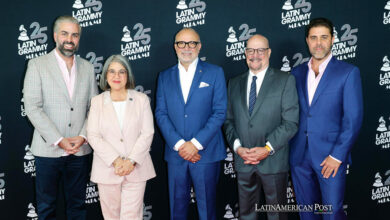Zero Waste for beginners
This movement teaches you how to have a lifestyle without waste

According to The World Counts, if the garbage of a whole year in the world were placed in trucks aligned one after another, the planet could be circumnavigated 24 times. To avoid this scenario and thanks to the action of organizations and people aware about the waste generation, initiatives that promulgate the 'Zero Waste' have been born. A movement that aims to teach people to have an environmentally responsible, minimalist lifestyle with conscious consumption habits.
Leer en español: ¿Guardarías tu basura de un año en un frasco de mermelada?
The concept of Zero Waste began to be trendy in 2016 when a couple of bloggers decided to share through social media their lifestyle focused on the total reduction of waste. Lauren Singer and Kathryn Kellogg were the first visible faces of the movement to share that their one-year-old trash could be stored in a jam glass.
However, the true beginning of the trend is awarded to the Californian Bea Johnson, who after five years exploring a life without generating waste, published in 2013 the book 'House zero waste: the last guide to reduce your waste', which explains the five rules to follow to achieve a life without waste.
The secret of the five 'R'
As mentioned by Jhonson in her book, to reduce waste each person must follow the rule of the five 'R': Reject, reduce, reuse, recycle, reincorporate.
Also read: Are you conscious of the pollution you cause?
- Reject: Avoid the consumption or distribution of disposable items such as straws, cutlery, boxes, and bags.
- Reduce: Avoid packaging and consume in an environmentally intelligent way
- Reuse: Consume or acquire only elements with a long lifespan or that can be transformed
- Recycle: Learn to separate the waste that should definitely be expelled
- Reincorporate : Convert organic waste IGNORE INTO fertilizers or energy
According to Gabriela Baeza, founder of the Zero Waste Project in Mexico and interviewed by the VICE media, carrying out at least three of the five 'R' can reduce by more than 60% the waste produced per month per person and in this way contribute to environmental protection.
"We are already reaching the limits of our planet and this is reflected in the extinction of thousands of species, climate change, water pollution by textile factories, and all environmental problems at a local and global level. With this I do not mean that we should return to live in the caverns or become hippies, I simply think we should look for alternatives to the current economic model, "explains Baeza for VICE.
Zero Waste for beginners
In some of the major cities of the United States such as New York and Los Angeles, the Zero Waste concept is applied in specialized stores, cafes, restaurants, and groups of people who have decided to change their habits to lead an environmentally and ecologically responsible lifestyle.
In Latin America, although the trend is known, not many people practice it or those who do it fail very early in the attempt.
Also read: What do Latin American cities need to be smart?
Based on the recommendations given by bloggers and experts in this movement, we decided to group some of the simplest actions that people interested in reducing their waste can follow. To adopt this lifestyle, it is advisable to include or modify consumption habits gradually so as not to become overwhelmed in the short term and leave aside the purpose.
Steps to transform your life in 'zero waste':
- Replace conventional batteries with rechargeable batteries
- Load a container of water instead of buying disposable bottles all the time
- Avoid buying vegetables or fruits wrapped in plastic.
- Do not use bags, cigarettes, or any disposable item inside and outside your home
- Create household cleaners (water, lemon, baking soda, and white vinegar) instead of buying chemicals in plastic containers
- Buy grains and cereals in bulk and in bags to avoid unnecessary wrapping
- Acquire elements with durability greater than six months or whose containers can be reused
LatinAmerican Post | Krishna Jaramillo
Translated from “¿Guardarías tu basura de un año en un frasco de mermelada?”





